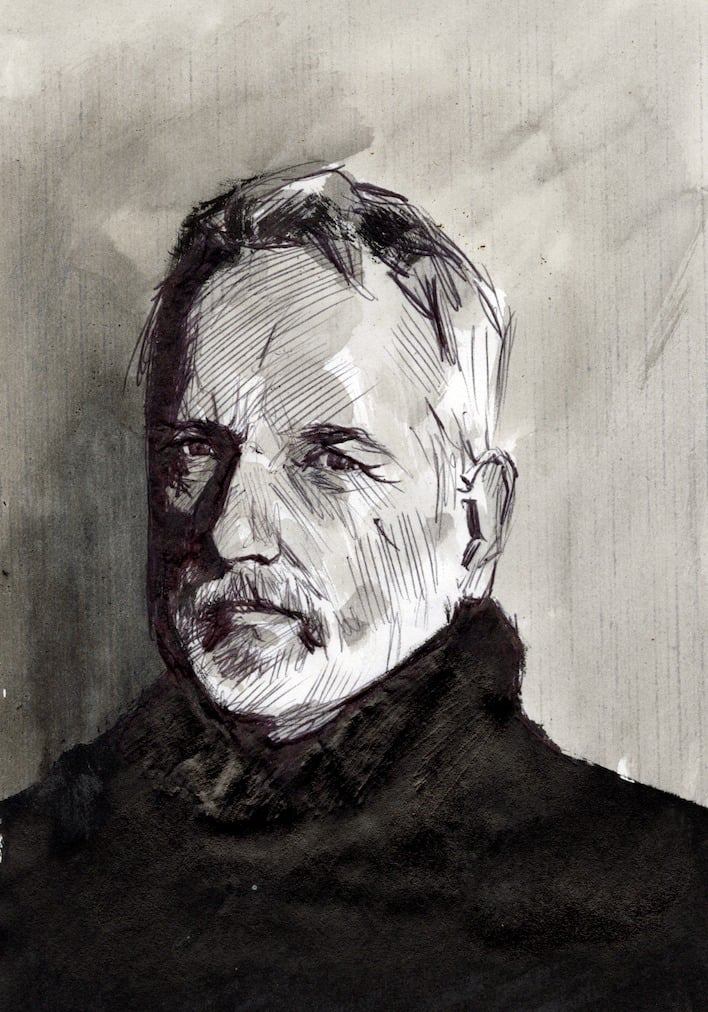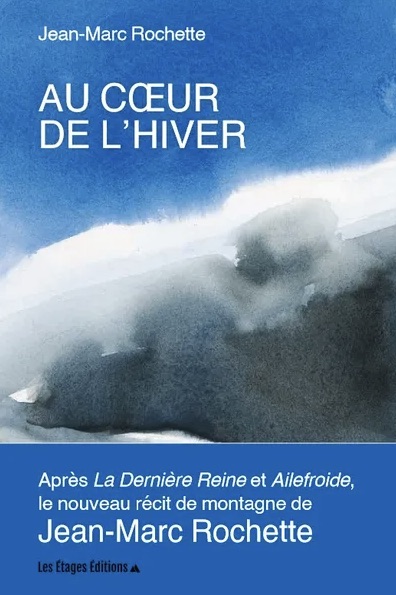Following on from his comic strip La dernière reine, currently being adapted for the screen, this mountain enthusiast has written his first novel, Au cœur de l’hiver. It’s the story, in the midst of the Covid-19 pandemic, of his departure from Paris, with his partner Christine Cam, for a long winter in their chalet in the hamlet of Les Étages, in the middle of the Écrins massif, at an altitude of 1,600 metres, cut off from the world…
Why did you decide to start writing? Was it out of necessity? A long-held desire? Was it linked to your decision to give up the graphic novel, as you write in Au cœur de l’hiver?
I put everything into La dernière reine. I came out of it very tired, with the feeling that I’d done all I had to say in that genre, that I had nothing more to add… But I still like telling stories. The story of this mountain retreat, which is very psychological and descriptive, wouldn’t make a good comic strip. I was convinced of that. It lent itself more to the writing, to its strength. So I set to work, with one premise in mind: if the exercise proved too difficult, I’d give up. In three months, the winter of 2023, the book was written.
Nevertheless, a few watercolours punctuate this first novel here and there…
It’s a classic practice to add drawings to texts. It used to be quite common. Paolo Cognetti, for Les huit montagnes, revived this practice. I liked it. And, since I draw myself, it would have been wrong not to.
Covid-19 alone doesn’t explain your departure. You describe an artist’s life as generally full of disappointments, which in your case « has been nothing but a long resistance up to now« . How does the environment of Les Étages put you « back on track« ?
Why is Jean Giono so attached to Manosque, or Paul Cézanne to Sainte-Victoire? It’s hard to say… At an altitude of 1,600 metres, in the heart of the Écrins mountain range, you’re in the middle of a nature reserve, so you’re out of touch with contemporary society, especially in winter – but even in summer. I’ve known the city well, 20 years in Paris and 10 years in Berlin, with a permanent feeling of lack… Les Étages is my place, my biotope. Everything speaks to me here. Probably because it’s where I grew up, where I passed from childhood to adulthood. It must have left its mark…
Make no mistake: Au cœur de l’hiver is not an autobiography. It’s true that you describe elements of your life, but above all you describe the natural world around you. Is observing part of the refocusing on the essentials that came with moving to Les Étages?
Yes, of course it is. At the same time, contemplation has always been with me since I started painting. It’s all about looking outwards, isn’t it? So there’s no real surprise there. On the other hand, I was astonished to see the extent to which painting, and even comics, have influenced my writing, and how rich it can be when describing a landscape. Until I wrote this book, I was convinced of the primacy of painting over writing in this field. This is much less the case today. These two modes of expression respond to and reinforce each other. Chinese painters, for example, systematically accompany their work with poetry…
As well as contemplation, there’s another, much more down-to-earth activity that punctuates the story of your wintering: cooking. It’s quite an organisation in these conditions…
Yes, starting with the pantry. Like the hold of a boat before a long crossing. The meals themselves are just as important. They are real moments of happiness in an environment as austere as Les Étages, as long as you make sure you vary the pleasures. So yes, it’s work.
You decided to entrust this book to the publishing house you set up. Why did you make this choice?
Christine Cam, my partner, is behind Étages Éditions. Admittedly, for the moment, she has mainly published my works, but her catalogue is expanding. By entrusting Au cœur de l’hiver to her, I’ve opted for autonomy. I have more freedom, I don’t have to answer to anyone, just as I don’t have to answer to anyone for the art gallery we’ve just opened in Grenoble, so I’m very much in line with the life I lead at altitude.
Looking back, would you say that writing this first book was enjoyable?
Not everyone knows it, but I had a difficult time at school: I was very dyslexic. So much so that I had a certain complex about writing. That’s why, for a while, I had to work with scriptwriters, before I agreed to try my hand at it and, against all odds, I found it easy. To my great surprise, I think I even find it easier to write than to create comics. For me, the first task is very sunny and poetic, the second much more laborious. So Au cœur de l’hiver gave me a lot of pleasure, yes. It was a wonderful experience that I may do again…


